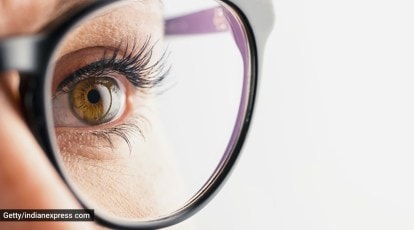Leading Cardiologist Andalusia: Your Partner in Heart Health
Wiki Article
Is Refractive Surgical Procedure Right for You? Aspects to Consider for Better Eyecare
In the world of eye treatment, the decision to undergo refractive surgical treatment is a substantial one that demands thoughtful factor to consider. From the ins and outs of one's eye health to the details of day-to-day habits and individual assumptions, each aspect holds importance in the broader landscape of refractive surgery candidateship.Eye Health And Wellness Examination
When considering refractive surgical procedure, a detailed eye health analysis is critical to evaluate the suitability of the procedure for each and every person. neurologist andalusia. This assessment includes a series of evaluations and tests performed by an eye treatment professional to establish the overall wellness of the eyes, the presence of any kind of underlying problems, and the security of the refractive errorDuring the evaluation, different elements are taken into account, such as the individual's case history, current eye prescription, corneal density, pupil dimension, and tear film high quality. These assessments assist to recognize any type of contraindications to refractive surgery, such as corneal irregularities, cataracts, or neglected eye infections. In addition, the assessment aids to handle person expectations relating to the potential end results of the surgical procedure based upon their distinct eye attributes.
Eventually, the eye health and wellness analysis is essential in guaranteeing the security and performance of refractive surgical procedure, as it provides valuable insights into the individual's eye health condition and assists figure out one of the most ideal therapy alternatives for achieving ideal aesthetic end results. (cardiologist andalusia)
Lifestyle Assessment
A complete lifestyle evaluation is essential in establishing the viability of refractive surgical procedure for a person's visual correction needs. Way of living elements such as occupation, leisure activities, and daily tasks play an essential role in the decision-making procedure concerning refractive surgical treatment.Moreover, way of living behaviors such as sporting activities engagement, outdoor activities, or perhaps skincare regimens can influence the healing process and total success of refractive surgical treatment. People that involve in call sporting activities may need to take added safety measures to shield their eyes throughout the recovery period. In addition, people with considerable sun exposure might need extra post-operative care to stop complications. By performing an extensive way of life analysis, eye treatment professionals can tailor their recommendations and treatment strategies to meet the distinct requirements of each person, eventually resulting in enhanced visual results and complete satisfaction.
Assumption Positioning

People require to comprehend that while lots of people achieve 20/20 vision or better complying with refractive surgical procedure, some might still require glasses for particular tasks like reading or driving at evening. Taking care of these assumptions aids prevent frustration and frustration post-surgery, leading to a more positive general experience for the person.
Danger Analysis

Variables that might enhance the risk of issues consist of age, particular clinical conditions like autoimmune diseases, unpredictable vision prescription, thin corneas, and impractical client expectations. Additionally, picking a skilled and skilled specialist, adhering to pre and post-operative treatment guidelines diligently, and revealing any type of appropriate clinical background can assist alleviate threats.
To lessen the chance of issues, ophthalmologists perform thorough pre-operative examinations to determine see this page any contraindications to surgery. They additionally go over the potential risks and advantages with patients during the assessment procedure. By participating in open interaction and shared decision-making, both the individual and the eye doctor can work with each other to figure out if refractive surgical procedure is the ideal choice based on specific threat profiles and preferred outcomes.
Appointment Value
Thinking about the crucial duty of educated decision-making in examining risks and possible issues in refractive surgical procedure, the appointment process holds significant relevance in assisting individuals in the direction of optimum outcomes. Throughout the assessment, the ophthalmologist assesses the client's eye health and wellness, refractive errors, and overall viability for surgery. This initial assessment is essential in establishing one of the most appropriate treatment for each individual, considering elements such as corneal thickness, student dimension, and existing eye problems.Furthermore, the consultation offers as an opportunity for people to review their assumptions, problems, and any type of questions they may have regarding the surgery. Clear interaction in between the specialist and the individual is vital to ensure practical expectations and an extensive understanding of the prospective threats and benefits included.
Furthermore, the assessment permits the specialist to describe the different surgical choices available, their respective end results, and the post-operative treatment called for. This extensive discussion empowers clients to make well-informed choices regarding their eye care, leading to much better complete satisfaction and end results post-surgery.
Verdict
To conclude, people considering refractive surgery should go through a comprehensive eye health evaluation, assess their way of life practices, align their assumptions with prospective end results, assess the associated threats, and prioritize consultations with click to investigate eye treatment experts. These factors play a crucial function in establishing the viability of refractive surgery for each and every person, making sure optimal outcomes and fulfillment with the treatment.Individuals considering refractive surgery frequently have high expectations relating to the results, expecting ideal vision without the requirement for glasses or get in touch with lenses. While refractive surgery can substantially improve vision and reduce reliance on aesthetic help, it is important for clients to understand that results might vary based on specific aspects such as the degree of refractive error, corneal thickness, and overall eye health.
By involving in open communication and shared decision-making, both the ophthalmologist and the client can function together to determine if refractive surgery is the appropriate choice based on specific danger accounts and desired results.
Considering the critical duty of educated decision-making in evaluating threats and potential complications in refractive surgical procedure, the assessment procedure holds considerable importance in directing individuals in the direction of more information ideal results. Throughout the appointment, the eye doctor evaluates the individual's eye health, refractive mistakes, and general viability for surgery.
Report this wiki page